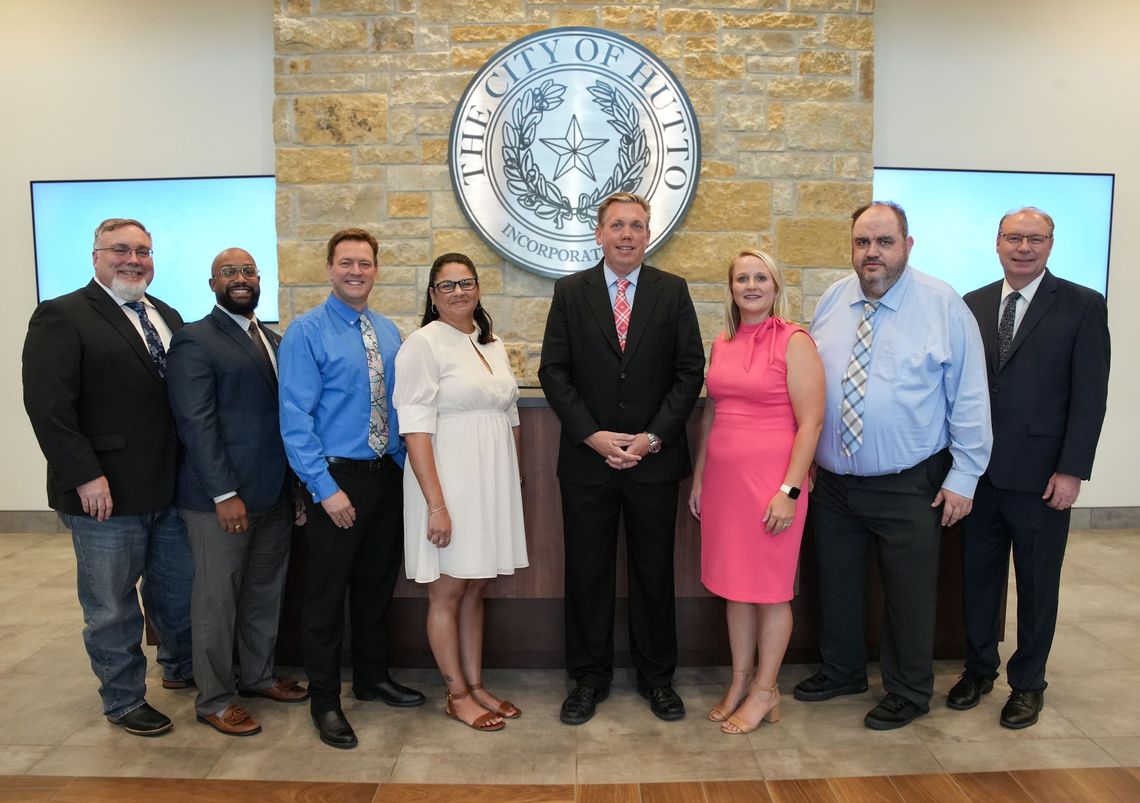HUTTO — After an exchange between a councilwoman and an audience member during a March 7 City Council session prompted the public official to leave her seat and sit next to the man, some on the dais are opening up about what they say is a culture of disruption.
According to some council members, the occasionally rancorous comments from the audience are getting worse during the public meetings.
“I’ve been the brunt of attacks by a small handful of citizens during public comment. However, these individuals were acting within the guidelines established for them to exercise their First Amendment rights since that time is set aside specifically for them to speak their minds,” Mayor Pro Tem Peter Gordon said.
He added, “I have had disruptive and threatening behavior outside of public comment in the form of audience members making obscene gestures toward me, making loud comments or name-calling while I was speaking.”
Gordon said in some cases he has had to address the audience and ask them to be more respectful so the meeting could continue.
At the March 7 meeting, Councilwoman Dana Wilcott left the dais to speak to an audience member who had been making comments throughout the evening.
Many say the issue involves a delicate balance between the First Amendment right to free speech and local government’s ability to conduct a public meeting without undue disruptions.
“Free speech and the right to petition the government for redress of a grievance are important rights recognized by the First Amendment. Expression of a dissenting view on its own is not a personal attack,” Councilman Dan Thornton said. “I have seen the majority of the council and mayor collectively and individually criticized and called out personally on various occasions, but never any threatening behavior. Disruptive behavior is more subjective.”
Wilcott provided examples of times when disruptive audience members have been removed from Texas state governmental meetings by police due to their behavior, without the incidents being considered a loss of First Amendment rights. Those examples included attendees chanting, yelling slogans, carrying banners and being generally too loud for officials to conduct business.
The city maintains a police presence at council meetings to help maintain order when needed, officials said. According to Greg Amsler, assistant to the city manager, police officers typically do not step in to remove individuals from council meetings unless a criminal act such as assault or vandalism occurs, or if they are requested to remove a person by the mayor.
“It is important to state that a person’s speech alone is not what would be a standard used by law enforcement to remove a person. It would have to be a result of a criminal offense,” Amsler said.
State law prohibits hindering a proceeding by disorderly conduct. The penal code also disallows disruption of a meeting or procession. In those cases, Hutto police can ask the person to voluntarily leave and escort them out.
No further action is usually needed, according to Amsler.
Removal by police is not the only tool the council has for dealing with frequent interruptions.
Gordon and Wilcott both said calling a point of personal privilege is an option for any council member when they feel someone is being disruptive or that something in the meeting is making it difficult to continue the proceedings.
A point of personal privilege is a request for the mayor or chairperson of the meeting to address an issue so that a session can peacefully continue.
Council members said they also have a duty to ensure civility, both among audience members and among themselves.
“We have an obligation as elected officials to exercise proper decorum in our interactions with each other and with the public,” Thornton said. “That is especially important when we disagree with the view expressed by the other party. If council members can’t get this right, we can’t complain when the public follows our example.”
Several council members said attendees lately have been increasingly outspoken during public comment periods.
At a September meeting, a resident ended an emotion-filled speech with “(expletive) you” before walking out. Sensitive issues have resulted in numerous audience members lobbing unbridled insults and accusations toward council members.
Snyder has requested the issue be discussed at the next council meeting March 21. He also believes some of the culture of disrespect being shown by the public is a reflection of a sometimes-spirited give-and-take between council members themselves.
“In Hutto, we have rules to how we should respect each other. But, when we don’t follow those, how can we expect the people to respect us?” Snyder said. “We act one way on the dais as a City Council and expect the citizens to act differently?”
He added, “We’ve gotta start being able to discuss issues without name-calling and all of that. If we don’t, we’ll never get the public to do anything.”




